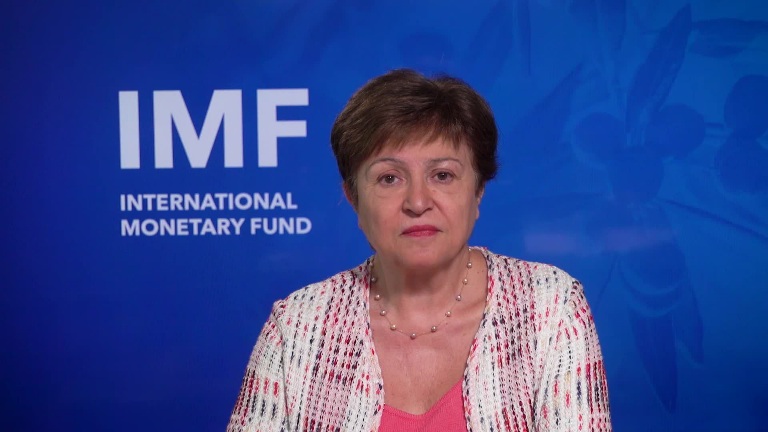The International Monetary Fund (IMF) has raised fresh concerns over illicit financial flows (IFFs) from Nigeria, warning that they are exacerbating the country’s already strained revenue position and undermining efforts to achieve fiscal sustainability.
Speaking at the 2025 IMF–World Bank Annual Meetings in Washington, Kristalina Georgieva, IMF Managing Director said the Fund is increasing its focus on tracing and curbing illicit flows, particularly in countries like Nigeria where revenue mobilisation remains a critical challenge.
“We believe that for countries like Nigeria, the IMF’s renewed focus on tracing illicit financial flows could provide a blueprint for plugging the fiscal leakages that have long undermined revenue generation and sustainable growth,” Georgieva said.
Illicit financial flows — which include stolen public funds, proceeds from corruption and criminal activity, and anonymous digital transactions — are costing developing economies billions of dollars annually.
In Nigeria, the problem has taken on heightened urgency as the country faces rising debt servicing costs, declining oil revenues, and limited fiscal space to fund development priorities.
Georgieva described IFFs as a global threat that is especially harmful to developing countries. “You may have money, just plainly stolen money that belongs to the taxpayers. You may have private money directed for criminal activities undermining the welfare of citizens,” she said. “Now with digital money, criminal activities can be funded without being traced. This is a serious problem, and we have to take it as such.”
While illicit flows are not new, the IMF said their nature has become more complex. A recent policy briefing from the Fund highlighted how IFFs now range from traditional embezzlement and trade misinvoicing to modern methods such as the misuse of cryptocurrencies and digital platforms for anonymous cross-border transactions. Officials noted that weak enforcement, limited oversight, and institutional gaps continue to allow such practices to thrive.
In response, the IMF has stepped up efforts to integrate anti-corruption and financial integrity assessments into its core operations. “Following the money has now become a compulsory part of the IMF’s annual Article IV consultations — the standard economic health check for member countries,” Georgieva said.
Read also:Food inflation drops to 16.87% in September on maize, grains decline
“This ensures that the Fund routinely assesses each nation’s exposure to illicit flows and financial integrity risks.”
The IMF also confirmed that any financial program involving countries with systemic IFF vulnerabilities would now include specific corrective measures. Technical assistance, policy advice, and targeted training are being extended to help governments detect and respond more effectively to suspicious transactions.
Nigeria, Africa’s largest population, has long struggled with revenue underperformance. Non-oil revenues remain low by global standards, and a significant portion of potential tax income is believed to be lost to illegal outflows and corruption. Government efforts to reform tax administration and improve compliance have made some progress, but leakages persist.
Georgieva said the IMF was also supporting governments through its Governance Diagnostics initiative, aimed at identifying institutional weaknesses that enable corruption and financial crimes.
“The governance diagnostic is not an audit; it is about identifying vulnerabilities in the institutional setup — the breeding grounds for problems — and proposing reforms to address them,” she explained.
Read also: Africa’s growth resilient as reforms, inflation gains take hold — IMF
She emphasised that reversing the tide of illicit financial flows will require collaboration beyond government agencies. Civil society groups, financial institutions, and international partners all have roles to play in promoting transparency and accountability.
“We ask our teams to engage with civil society and non-government institutions because they often know where the vulnerabilities lie,” Georgieva said. “Working together, we can build trust and achieve more.”
The IMF praised countries like Kenya and Sri Lanka for adopting collaborative frameworks to combat financial crime and reinforce good governance, and encouraged Nigeria to continue building institutional capacity to close fiscal gaps and restore investor confidence.

